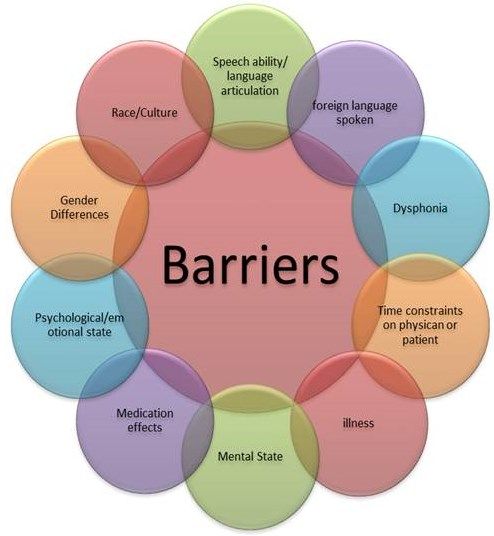Why Do People With Autism Have Trouble Speaking?
Welcome, curious minds, to the fascinating world of autism and the intricacies surrounding communication. In this article, we’ll explore an intriguing question: “Why do people with autism have trouble speaking?”
Now, let’s embark on a journey to uncover the unique challenges that individuals with autism face when it comes to expressing themselves verbally. Autism is a complex neurodevelopmental condition that affects how people perceive and interact with the world around them.
But here’s the thing: communication can be a bit trickier for some folks on the autism spectrum. So, join me as we dive into the reasons behind this enigma and shed light on the fascinating world of autism communication. Are you ready? Let’s get started on this adventure together!
:max_bytes(150000):strip_icc()/is-late-speech-a-sign-of-autism-259888-v2-2cd7a2607c79463db302094da6fbf934.jpg)
Why do people with autism have trouble speaking?
Introduction:
People with autism often face challenges in various aspects of their lives, and one of the most prominent difficulties they encounter is with speaking. Communication is a fundamental aspect of human interaction, and when individuals on the autism spectrum struggle with verbal expression, it can affect their social interactions, educational experiences, and overall quality of life. Understanding the reasons behind this difficulty is crucial in providing appropriate support and interventions for individuals with autism. In this article, we will delve into the factors that contribute to why people with autism have trouble speaking and explore potential strategies to enhance their communication skills.
1. Sensory Processing Differences:
Individuals with autism often have differences in sensory processing, which can impact their ability to speak. Sensory processing refers to how the brain receives and interprets information from the senses. Some individuals with autism may be hypersensitive, meaning they are overly sensitive to certain sensory stimuli. This hypersensitivity can make it challenging for them to concentrate on speech and articulate words. For example, background noises, bright lights, or certain textures may cause distress and make it difficult for them to focus on producing clear speech.
Additionally, some individuals with autism may also experience hypo-sensitivity, which means they have a decreased sensitivity to sensory input. In these cases, they may have difficulty perceiving the subtle movements of their lips, tongue, and vocal cords involved in speaking. This can result in imprecise articulation and difficulty forming words correctly. To address these challenges, individuals with autism may benefit from interventions that focus on sensory integration techniques, such as occupational therapy, to help regulate their sensory experiences.
2. Social Communication Challenges:
Another factor that contributes to the difficulty in speaking for individuals with autism is social communication challenges. Autism is characterized by impairments in social communication and interaction, making it challenging for individuals on the spectrum to engage in conversation and express their thoughts and feelings effectively. Difficulties in understanding and using nonverbal cues, such as facial expressions, body language, and gestures, can make it hard for them to interpret and respond appropriately in social situations.
Furthermore, individuals with autism may struggle with pragmatic language skills, which involve using language for social purposes, such as initiating and maintaining conversations, understanding sarcasm or humor, and taking turns during interactions. These challenges can lead to difficulties in engaging in meaningful conversations, expressing their needs and desires, and effectively participating in social interactions. Targeted interventions, such as social skills training and speech therapy, can help individuals with autism improve their social communication skills and enhance their ability to speak in various contexts.
3. Executive Functioning Deficits:
Executive functioning refers to a set of cognitive skills that enable individuals to plan, organize, initiate, and sustain actions towards achieving a goal. People with autism often exhibit deficits in executive functioning, which can impact their ability to engage in coherent and organized verbal communication. Difficulties with executive functioning can manifest in challenges such as poor organization of thoughts, difficulty in generating and sequencing ideas, and struggles in self-monitoring and self-regulation during conversations.
These executive functioning deficits can contribute to the trouble individuals with autism experience while speaking, as they may find it hard to express their thoughts in a logical and coherent manner. They may struggle with maintaining a conversation topic, transitioning between ideas, and using appropriate grammar and syntax. Interventions that focus on improving executive functioning skills, such as cognitive-behavioral therapy and the use of visual supports, can help individuals with autism overcome these challenges and enhance their speaking abilities.
4. Receptive Language Difficulties:
In addition to the challenges associated with expressing themselves verbally, individuals with autism may also struggle with understanding and processing language, known as receptive language difficulties. These individuals may have difficulty comprehending spoken words, following instructions, or interpreting complex sentences. These difficulties can hinder their ability to engage in meaningful conversations and respond appropriately to verbal stimuli.
Receptive language difficulties can stem from the atypical development of language centers in the brain and differences in the neural pathways responsible for language processing. Speech therapy, augmented and alternative communication systems, and visual supports can help individuals with autism improve their receptive language skills and facilitate better understanding of spoken language, leading to improved speaking abilities.
5. Sensory Overload:
Another factor that can contribute to why people with autism have trouble speaking is sensory overload. Sensory overload occurs when an individual is exposed to an overwhelming amount of sensory information, which can cause distress, anxiety, and difficulty focusing. In situations of sensory overload, individuals with autism may become overwhelmed, leading to a shutdown or meltdown response.
During these episodes, the individual’s ability to speak may be temporarily compromised as they cope with the sensory overload. They may experience difficulty processing and formulating words due to the heightened sensory stimulation. Creating sensory-friendly environments and employing strategies to minimize sensory overload can help reduce the impact on individuals with autism and support their ability to communicate effectively.
6. Motor Coordination Challenges:
Motor coordination challenges can also contribute to the difficulties individuals with autism face in speaking. Fine motor skills, which involve precise movements of the muscles, are integral for the coordination required in speech production. Some individuals with autism may have difficulties with motor coordination and fine motor skills, known as dyspraxia or developmental coordination disorder.
These challenges can affect the ability to control the muscles required for speech, making it difficult to articulate sounds and form words accurately. Speech therapy that focuses on motor coordination and oral-motor exercises can help individuals with autism improve their speech production skills and overcome these motor coordination challenges.
7. Anxiety and Social Communication Anxiety:
Anxiety often co-occurs with autism spectrum disorder, and it can significantly impact an individual’s ability to speak. Social communication anxiety, specifically, can make individuals with autism feel anxious and self-conscious in social situations, leading to speech difficulties. Anxiety can affect the muscles involved in speech production, causing tension and hindering clear articulation.
Furthermore, anxiety may impair cognitive processes necessary for effective communication, such as attention, memory, and problem-solving. It can make it challenging to focus on formulating coherent sentences and expressing thoughts and ideas. Strategies such as relaxation techniques, cognitive-behavioral therapy, and gradual exposure to social situations can help individuals with autism manage their anxiety and improve their ability to speak confidently.
Additional Strategies for Enhancing Communication Skills:
1. Visual Supports: Using visual supports, such as visual schedules, social stories, and visual aids, can help individuals with autism understand and follow verbal instructions more effectively. These supports provide visual cues that can enhance comprehension and facilitate communication.
2. Augmented and Alternative Communication (AAC): For individuals who struggle with verbal communication, AAC systems can be beneficial. AAC includes tools such as picture-based communication boards, sign language, and electronic devices that produce spoken language. AAC enables individuals with autism to express their thoughts and needs, bridging the gap in spoken communication.
3. Social Skills Training: Engaging in social skills training programs can help individuals with autism develop effective communication strategies, such as active listening, maintaining eye contact, and taking turns during conversations. These programs provide opportunities for individuals to practice social interactions and enhance their communication skills in a supportive environment.
In conclusion, people with autism may face challenges in speaking due to various factors such as sensory processing differences, social communication challenges, executive functioning deficits, receptive language difficulties, sensory overload, motor coordination challenges, and anxiety. Understanding these factors is essential in providing appropriate support and interventions to help individuals with autism enhance their communication skills and navigate social interactions more effectively. By implementing strategies such as sensory integration techniques, social skills training, and the use of visual supports, individuals with autism can overcome their speaking difficulties and thrive in their communication journeys.
Key Takeaways: Why do people with autism have trouble speaking?
- Autism can affect communication skills, including speech.
- Difficulties in speaking may be due to challenges in language development.
- Sensory issues can also contribute to speech difficulties in individuals with autism.
- Some people with autism may use alternative forms of communication, such as gestures or sign language.
- Speech therapy and intervention can help individuals with autism improve their communication skills.
Frequently Asked Questions
Around 30% of individuals with autism spectrum disorder (ASD) struggle with spoken language. This difficulty in communication can vary greatly from person to person. Here are some common questions related to why individuals with autism may face challenges with speaking.
1. How does autism affect speech and language?
The communication difficulties experienced by individuals with autism can be attributed to various factors. Firstly, there may be delays in speech development, causing a delay in acquiring language skills. Secondly, some individuals with autism may struggle with articulation, making it difficult to produce clear and understandable speech. Lastly, there can be challenges in social communication, such as understanding nonverbal cues and maintaining back-and-forth conversation.
It’s important to note that not all individuals with autism have difficulties with speech and language. Some individuals may be nonverbal and rely on alternative communication methods like sign language or augmentative and alternative communication (AAC) devices.
2. Are there any neurological reasons behind the speech difficulties seen in autism?
Yes, there are neurological reasons that contribute to the speech difficulties in autism. Research suggests that abnormalities in the connectivity and functioning of certain brain areas involved in language and communication play a role in these challenges. For instance, the areas responsible for language processing, such as the Broca’s and Wernicke’s areas, may not function optimally in individuals with autism.
Additionally, some studies have found structural differences in the brains of individuals with autism, particularly in regions associated with language and communication. These neurological factors can impact the development and execution of speech and language skills in individuals with autism.
3. Can therapy help individuals with autism improve their speech?
Speech and language therapy can be incredibly beneficial for individuals with autism who have trouble speaking. In therapy, various techniques are used to address specific communication difficulties. For example, speech therapists may work on improving articulation, expanding vocabulary, and enhancing social communication skills.
Therapy sessions are typically tailored to the specific needs of the individual and may involve a combination of direct speech therapy, visual aids, and assistive technologies. While progress may vary, many individuals with autism show improvement in their speech and language abilities with consistent therapy and support.
4. How can I support someone with autism who struggles with speaking?
When communicating with someone with autism who has trouble speaking, there are several strategies you can use to provide support. Firstly, give them extra time to process information and respond. Avoid rushing or interrupting them during conversations. Additionally, use clear and simple language, avoiding complex sentences or idiomatic expressions.
Visual supports, such as pictures or visual schedules, can be helpful in conveying information. It is also essential to actively listen and show understanding through gestures and facial expressions. Lastly, be patient and create an accepting and supportive environment that encourages communication and expression in alternative ways.
5. Are there any alternative communication methods for individuals with autism who are nonverbal?
Yes, for individuals with autism who are nonverbal or struggle with spoken language, alternative communication methods can be utilized. These methods include sign language, picture-based communication systems like PECS (Picture Exchange Communication System), and the use of augmentative and alternative communication (AAC) devices.
AAC devices can range from simple picture-based systems on tablets to more advanced devices that generate speech based on text or symbols. These tools enable individuals with autism to express their thoughts, needs, and desires effectively. The choice of alternative communication method depends on the individual’s preferences, abilities, and communication goals.
‘It is just like a miracle.’ Local therapy helps a non-verbal boy with autism speak
Summary
Learning to speak can be challenging for people with autism due to factors like sensory sensitivity and difficulty with social communication.
Autistic individuals may struggle with language development, such as delayed speech or struggling to understand spoken words. Factors like sensory overload and difficulty with social cues can make it harder for them to communicate effectively. It’s important to provide support and accommodations for individuals with autism to help them develop their language skills and foster better communication.


